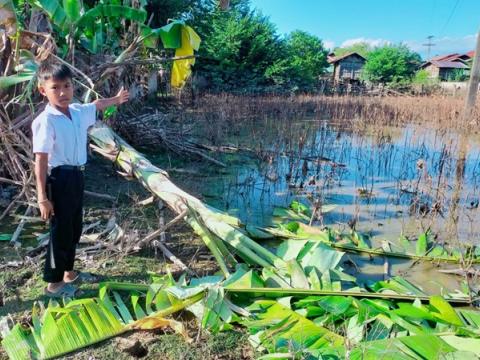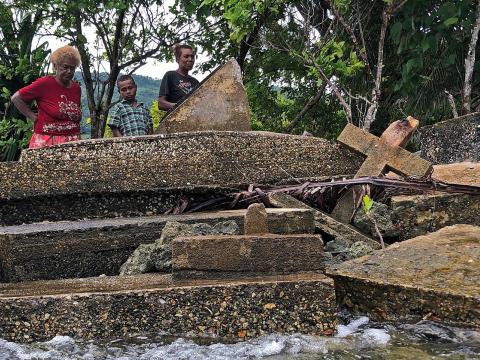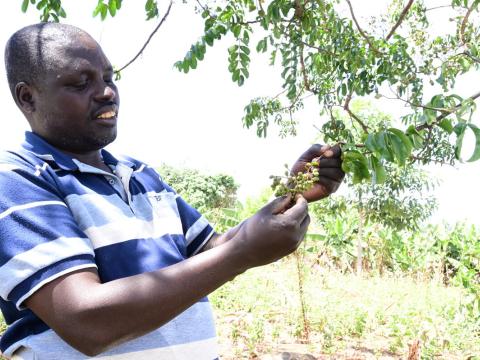
COP29: Maybe the rich are blind to climate devastation needs
Jason Garrett wonders whether the Bible could explain why wealthy countries still won't properly support poorer countries devastated by climate change
A few weeks ago World Vision released a series of Theological Briefs about our work on Environmental Sustainability and Climate Action, looking at the Biblical basis for our concern about these issues, how it impacts on our programming approach and what it means for our advocacy.
I had been reading these documents and thinking about World Vision’s presence at COP29, and what difference a Christian view could be at international meetings. What does the Bible say about climate finance? What does the Bible say wealthy countries should do to assist poorer countries adapt to climate change? Well of course, the Bible doesn’t say anything directly about climate finance, but it does say quite a lot about wealth and its consequences.
In three of the Gospel accounts (Matthew, Mark and Luke) Jesus says that it is very hard for a rich person to enter the kingdom of heaven; that it is easier for a camel to go through the eye of a needle than for a rich person to enter the Kingdom of God.
You might say that this passage is about whether rich people will be going to heaven when they die, rather than about climate change, so why is it relevant to this issue? But when Jesus talks about the ‘Kingdom of Heaven’ he isn’t talking about a place our souls go to at the end of our life. In the prayer that Jesus taught us to say, we pray “May your Kingdom come, your will be done, on earth as it is in heaven”, so the Kingdom of Heaven is something we should all be working to create, or at least get as near to as possible, here on the earth.
So, in that case, why can a rich person not enter the Kingdom of Heaven? In thinking about this recently, I wonder if it is because wealth places rich people so far away from the lives of ordinary people that they have no concept of the needs of people who do not have the privileges of money. They therefore don’t understand the need for compassion, care, and justice for the poor and the marginalised, and so are unable to enter into a world where resources are shared, workers are paid a decent wage and compensation is given for harm caused to others.
Perhaps that is why the rich countries at COP29 offered such a low target for climate finance at COP29. Is it that negotiators and politicians from the rich countries simply have no understanding of how climate change has been impacting poorer countries, and no real appreciation of the needs of many people in vulnerable, marginalised communities? I realise that in places like the UK there are many people with real needs, and it feels as though we have very little money here as well, but the reality is that there is plenty of money available to support the poorest in our own countries as well as supporting those most vulnerable to climate change across the world.
Developing countries are asking for $1.3 trillion a year to tackle climate change. This may sound like an impossibly large amount of money, but in fact the oil and gas industry alone has been making annual profits of $1.5 trillion in recent years.
Going back to the Bible, in Paul’s second letter to the Corinthians, he encourages his hearers/readers to be generous, saying “Remember this: Whoever sows sparingly will also reap sparingly, and whoever sows generously will also reap generously". That’s not meant to be a guarantee of a monetary return, but instead, if the rich countries of the world provide proper resourcing to the countries that are most impacted by climate change, maybe we will create a world without extreme poverty, with fewer disasters on our TV screens and where we can all enjoy a prosperous future for our children, not just the privileged few. Then perhaps we will be nearer to kingdom of God coming on earth, as it is in heaven.
Jason Garrett is Resilience Programme Adviser at World Vision UK


